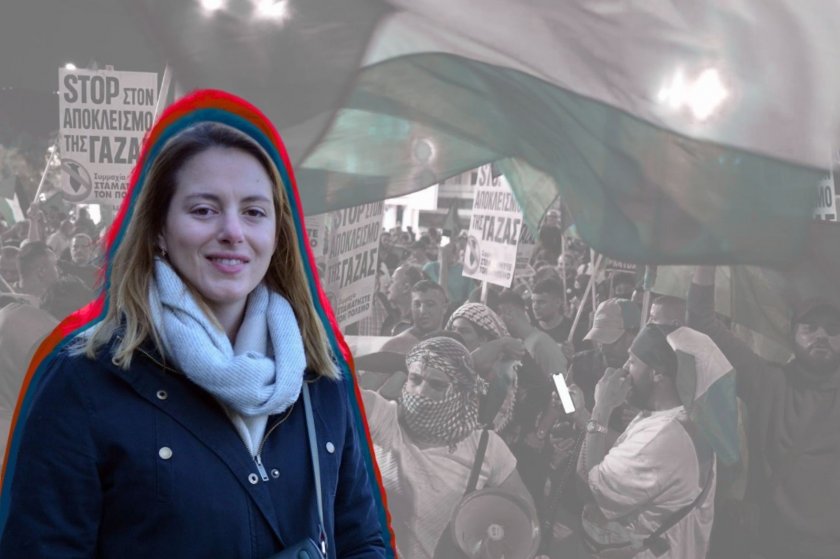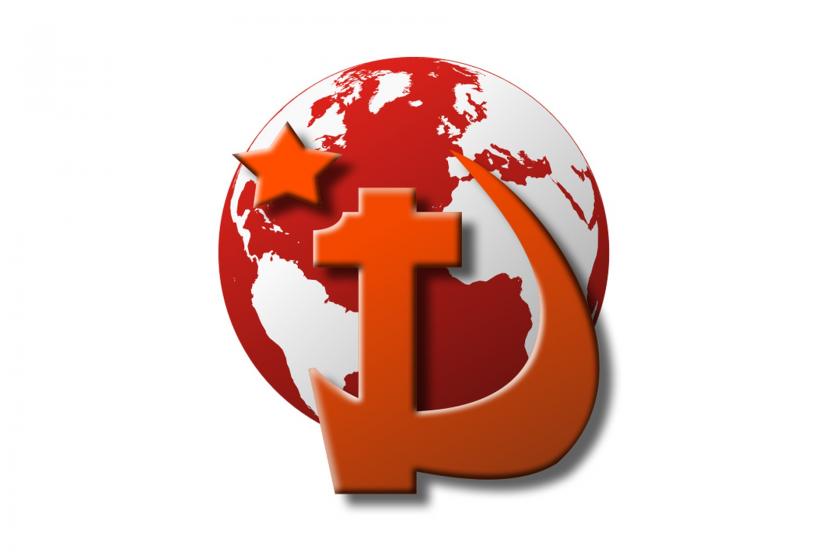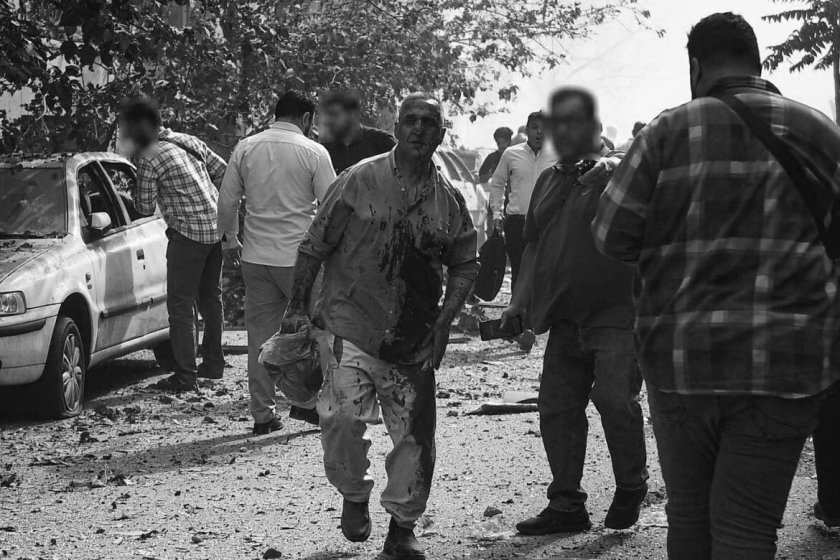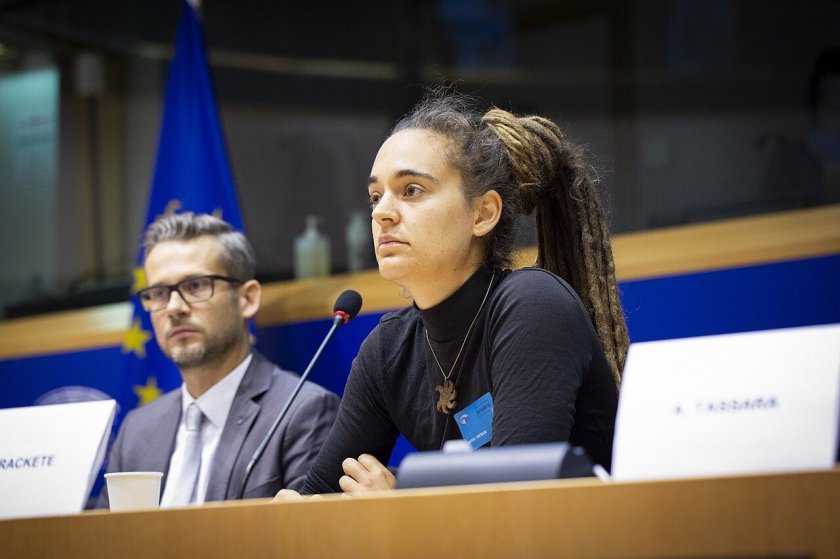Covid-19 crisis in Brasil
Brazilian Journalist Sandina Patriota wrote the social and political effects and consequences for the coronavirus outbreak in the country.

Fotoğraf: Fabio Teixeira/AA
Sandino Patriota
Journalist, São Paulo
The effects of the Covid-19 pandemic were exacerbated in Brazil, on the one hand, by the deep economic crisis that hit the country since March 9, 2020, with a sharp fall in the stock market, an intense devaluation of the national currency against the dollar. and to the euro and the economic depression, which was aggravated by the drop in commodity prices (especially oil and agricultural products). On the other hand, for the action of the federal government of President Bolsonaro who continues to deny the seriousness of viral contamination and broadcasting, to a greater or lesser degree, against the measures determined by the World Health Organization for social isolation and massive testing of the population.
Brazil has now entered the period of accelerated daily growth in the number of deaths and several states in the country (Note: Brazil is a federation with 26 states, 1 federal district and about 5,000 municipalities), as is the case in the state of Amazonas in the northern region, are about to see their health systems collapse.
Of the more than 800 deaths counted in the country so far, almost 300 occurred on the 7th and 8th of April alone and this daily figure tends to grow. This number, however, may actually be much higher since testing of the sick and even the dead are not taking place. While Turkey did 247 thousand tests and Iran 211 thousand, Brazil, a country with 210 million inhabitants, tested only 54,824 citizens, checking the number of 15927 infected.
The consequences of the evolution of COVID-19 in the coming days are unpredictable in a country with one of the greatest social inequalities in the world and where millions of people do not have access to drinking water and sewage treatment. The large cities, largely made up of slums, conurbations with small houses and huddled together, offer an additional factor to make the situation worse.
Practically all the heavy lifting of caring for the sick is being done by state governments and city halls. The federal government has done almost nothing and its first concern was to issue a bank bailout law in the amount of 1.3 trillion reals, and another allowing the employers to suspend the payment of salaries during the quarantine period. Bolsonaro's fascist government is increasingly weakened and isolated and his measures are challenged by the judiciary and even members of his own government. A portion of society, however, especially owners of commerce, fundamentalist members of evangelical churches and family members of the military and police continue to support it.
WHO REALLY GOVERNS BRAZIL?
Since taking office, Bolsonaro has seen a weakening of his power of command and isolation from society.
First, several of his illicit activities and links between his family and paramilitary criminals who are involved in the murder of city councilwoman Marielle Franco (Socialism and Liberty Party - PSOL) were revealed. These revelations shook Bolsonaro's relationship with the national congress (Chamber of Deputies and Senators), with several government defeats occurring in important votes.
Then, there was an internal division in the party that Bolsonaro used to win the elections (the Social Liberal Party - PSL). Bolsonaro and his sons (a federal deputy and another senator) lost control of the PSL and started to organize a new party for the 2020 municipal elections (Alliance Brasil), but this party remains without legal personality and will not be able to run in this year's elections.
Yet, the government's extreme submission to the interests of the United States and Trump's political positions made diplomatic relations with China, which is the main buyer of Brazilian commodities, shake, causing dissatisfaction among agribusiness entrepreneurs who had supported him. The main objective of both Bolsonaro and Trump, which was the military invasion of Venezuela, has been rejected.
And finally, the government's position of despising the fight against Covid-19 caused the rupture of state governors who had supported Bolsonaro's election, and today they have become political enemies of the government, such as the governors of São Paulo and Rio de Janeiro .
It should be noted that this weakening of the government was only possible due to the many popular mobilizations that took place in the country in 2019, especially the workers' strikes, the women's marches and the mobilizations of students and teachers
in defense of public education and science.
Since 2016, the year of the parliamentary coup that removed President Dilma Roussef from power, army generals have come to play a prominent role in the Brazilian government, represented, in fact, a parallel power. With the election of Bolsonaro, as the government weakens, the presence of generals intensifies. Initially a group of 4 generals, 2 from the active and 2 from the reserve - Mourão, Eduardo Ramos (replacing Santos Cruz), Fernando Azevedo and Augusto Heleno - was added to another active member: Braga Neto, current Minister of the Civil House (kind of prime minister). Bolsonaro had, when he was expelled from the army after planning a terrorist action, the rank of captain. Because he is a guy who glorifies the military hierarchy in a fascist way, Bolsonaro is more likely to be taking orders from his general ministers than ordering something from them.
But what we actually have in Brazil, and this since 2015, is a government directly managed by bankers and speculators, associated with foreign capitalists. Since that year, economy ministers have been bankers and have decided almost directly on national economic life. The current president of the Central Bank, for example, Ilan Goldfajn is a ziononist with dual nationality (Israel and Brazil). The main cause of the crisis currently experienced by Brazil is the ultra neoliberal adjustment that began to be implemented by the Dilma government, in 2015, and remains in action.
THE ACTION OF POPULAR MOVEMENTS IN THE FACE OF THE CRISIS
Popular movements are preparing to respond to the economic crisis and to Covid-19 working in poor neighborhoods in different communities. While reinforcing awareness of the need for social distance to fight the virus, militants (of the movements) seek to act to bring assistance to the poorest population, through food and personal protective and cleaning equipment. Financial support for the poorest approved by parliament was $ 600 reals per individual (just over half a minimum wage), but has not yet been effectively paid due to bureaucratic obstacles that have been imposed.
These actions have allowed the strengthening of social organization and dialogue with people about the need to overthrow the Bolsonaro government and build popular power. The development of the contamination situation in the coming days will indicate when it will be possible to carry out popular marches, when social isolation measures are no longer needed.
It is a job that is also carried out at the company doors, denouncing the unhealthy working conditions and the greed of the bosses in keeping non-essential services in operation even under this crisis, or the various layoffs that continue to occur. We seek to strengthen an independent union movement, in a context in which the main union centrals are paralyzed by political inaction and lack of perspective.
Elections for mayors and councilors of the country's approximately 5,000 municipalities are scheduled for this year. For the first time, a new working class party, the Popular Unit - UP, will present itself with independent lists in the elections, strengthening the propaganda of a socialist society and defending a program for the defense of popular rights, which includes the overthrow of Bolsonaro, for one popular government!
Forwarding to the next article...
10 seconds remaining






Follow Evrensel